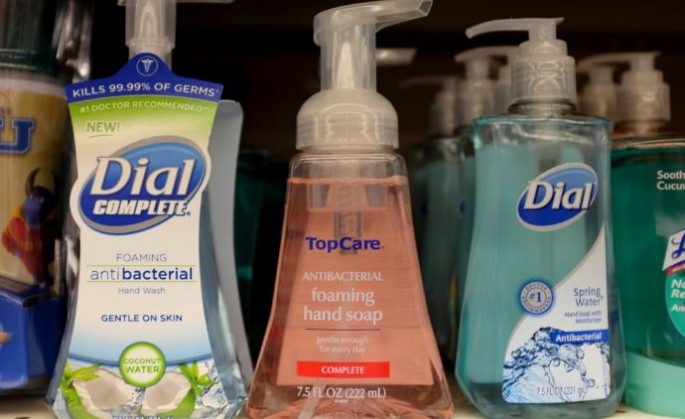The U.S. Food and Drug Administration (FDA) has banned antibacterial soaps and body washes from being sold in the United States, saying there's no proof these kinds of soap are safe and kill germs better than ordinary bath soap.
The FDA banned 19 chemicals regularly used in antibacterial soaps and argued these soaps provide no benefits over regular soap. Makers of antibacterial soaps also failed to prove these soaps kill germs, said the agency. Removing these chemicals means these soaps can no longer claim to be antibacterial.
Companies were given one year to remove the banned ingredients out of the products, said the FDA. The ban only affects hand soaps and body washes.
"Consumers may think antibacterial washes are more effective at preventing the spread of germs, but we have no scientific evidence that they are any better than plain soap and water," said Dr. Janet Woodcock, director of the FDA's Center for Drug Evaluation and Research.
"In fact, some data suggests that antibacterial ingredients may do more harm than good over the long-term."
The FDA also expressed concern antibacterials in these soaps contribute to the growing problem of antimicrobial resistance (AMR) in which microbes are becoming increasingly resistant to all known forms of antibiotics.
Among the banned chemicals are triclosan and triclocarban. The popular triclosan used in 93 percent of liquid products labeled antibacterial or "antimicrobial, said the FDA. Triclosan and the 18 other ingredients are used in over 2,100 products, or 40% of the soaps sold in the U.S.
The FDA said it's discussed the safety of triclosan and similar ingredients with manufacturers for at least a decade. Triclosan, however, is so popular the FDA expressed concerned about the long-term effects of its use. The Environmental Protection Agency is reviewing the banned anti-bacterial ingredients.
"Manufacturers did not demonstrate that they are both safe for long-term daily use and more effective than plain soap and water in preventing illness and the spread of certain infections," said Theresa Michele of the FDA's Division of Non-prescription Drug Products.
She also said using cleaners with the 19 banned ingredients could increase bacterial resistance, which is key to the AMR problem. The banned substances might also affect hormones.
Michele noted the FDA had given manufacturers time to submit data showing their antibacterial soaps were better than soap alone, but no significant new data were submitted.
She pointed out hand washing with plain soap and water is the most effective way to avoid getting sick and spreading germs to others.
On the other hand, hand sanitizers and wipes designed to be used without water and containing more than 50% alcohol are not affected by the new rules. Cleansers used in hospitals or nursing homes are exempt from the ban.
The banned chemicals are (and look for them in your bath soap and body wasg):
Cloflucarban; Fluorosalan; Hexachlorophene; Hexylresorcinol; Iodine complex (ammonium ether sulfate and polyoxyethylene sorbitan monolaurate); Iodine complex (phosphate ester of alkylaryloxy polyethylene glycol); Nonylphenoxypoly (ethyleneoxy) ethanoliodine; Poloxamer-iodine complex; Povidone-iodine 5 to 10 percent; Undecoylium chloride iodine complex; Methylbenzethonium chloride; Phenol (greater than 1.5 percent); Phenol (less than 1.5 percent) 16; Secondary amyltricresols; Sodium oxychlorosene; Tribromsalan; Triclocarban; Triclosan; Triple dye.





















